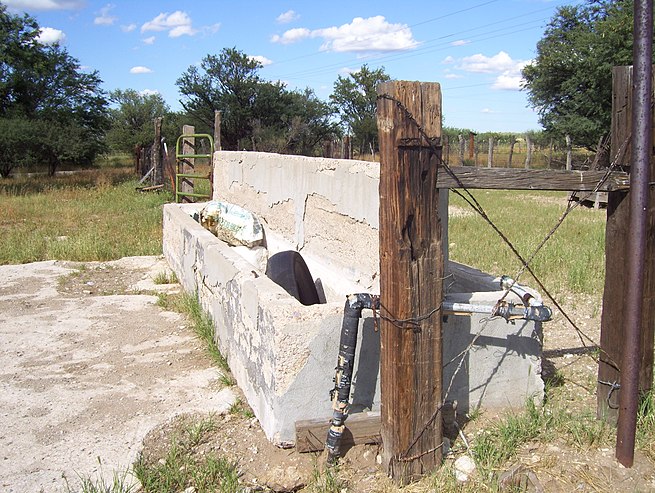Main Difference
The main difference between Manger and Stable is that the Manger is a structure used to hold food to feed animals and Stable is a building for horses and other livestock.
-
Manger
A manger, is a rack for fodder, or a structure or feeder used to hold food for animals. The word comes from the French manger (meaning “to eat”), from Latin mandere (meaning “to chew”).Mangers are mostly used in livestock raising and generally found at stables and farmhouses. They are also used to feed wild animals, e.g., in nature reserves.
A similar trough providing drinking water for domestic or non-domestic animals is a watering trough and may be part of a larger watering structure called abreuvoir.
-
Stable
A stable is a building in which livestock, especially horses, are kept. It most commonly means a building that is divided into separate stalls for individual animals. There are many different types of stables in use today; the American-style barn, for instance, is a large barn with a door at each end and individual stalls inside or free-standing stables with top and bottom-opening doors. The term “stable” is also used to describe a group of animals kept by one owner, regardless of housing or location.
The exterior design of a stable can vary widely, based on climate, building materials, historical period and cultural styles of architecture. A wide range of building materials can be used, including masonry (bricks or stone), wood and steel. Stables can range in components, from a small building housing one or two animals to facilities at agricultural shows or race tracks that can house hundreds of animals.
-
Manger (noun)
A trough for animals to eat from.
-
Stable (noun)
A building, wing or dependency set apart and adapted for lodging and feeding (and training) animals with hoofs, especially horses.
“There were stalls for fourteen horses in the squire’s stables.”
-
Stable (noun)
All the racehorses of a particular stable, i.e. belonging to a given owner.
-
Stable (noun)
A set of advocates; a barristers’ chambers.
-
Stable (noun)
An organization of sumo wrestlers who live and train together.
-
Stable (verb)
to put or keep (an animal) in a stable.
-
Stable (verb)
to dwell in a stable.
-
Stable (verb)
to park (a rail vehicle)
-
Stable (adjective)
Relatively unchanging, permanent; firmly fixed or established; consistent; not easily moved, altered, or destroyed.
“He was in a stable relationship.”
“a stable government”
-
Stable (adjective)
Of software: established to be relatively free of bugs, as opposed to a beta version.
“You should download the 1.9 version of that video editing software: it is the latest stable version. The newer beta version has some bugs.”
-
Stable (adjective)
That maintains the relative order of items that compare as equal.
-
Manger (noun)
a long trough from which horses or cattle feed.
-
Stable (adjective)
(of an object or structure) not likely to give way or overturn; firmly fixed
“specially designed dinghies that are very stable”
-
Stable (adjective)
(of a patient or their medical condition) not deteriorating in health after an injury or operation
“he is now in a stable condition in hospital”
-
Stable (adjective)
sane and sensible; not easily upset or disturbed
“the officer concerned is mentally and emotionally stable”
-
Stable (adjective)
not likely to change or fail; firmly established
“prices have remained relatively stable”
“a stable relationship”
-
Stable (adjective)
not liable to undergo chemical decomposition, radioactive decay, or other physical change
“stable nuclei”
“isocyanic acid reacts with amino groups to form a stable compound”
-
Stable (noun)
a building set apart and adapted for keeping horses
“the horse was led from its stable”
-
Stable (noun)
an establishment where racehorses are kept and trained
“racing stables”
“the horse make his debut for the Mick Naughton stable”
-
Stable (noun)
the racehorses of a particular training establishment.
-
Stable (noun)
an organization or establishment training or producing a particular type of person or product
“the player comes from the same stable as Agassi”
-
Stable (verb)
put or keep (a horse) in a stable
“they must be stabled and fed”
-
Stable (verb)
put or base (a locomotive or train) in a depot
“one of the two locomotives was stabled at Fort William”

